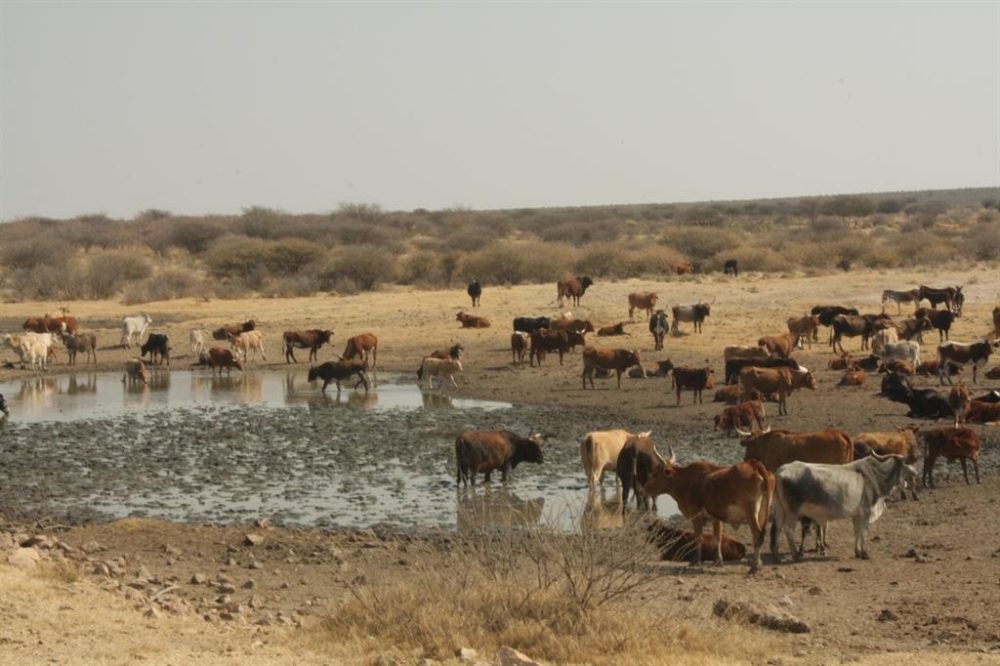
The signs of an impending drought are clear, and farmers should already be developing drought-coping strategies to ensure their animals’ survival until the next rainy season.
This is according to Agribank’s technical advisor for livestock and rangeland management, Erastus Ngaruka. Ngaruka advised farmers on the need to prepare for water scarcity, higher temperatures, poor grazing conditions and associated threats to livestock health.
“Both livestock and crop farmers are currently worried about the prevailing weather conditions. Some parts of the country received good early rainfall in October, whereas other parts received late rains,” he said.
Ngaruka pointed out that this is not an attribute of a good rainy season, as rainfall was not well distributed and rangeland productivity in some areas is still not optimal.
Ngaruka warned there are few or no positive signs of relief for the remaining months of the season.
“Therefore, if the remaining months receive rain, it may not have an immediate improvement on rangeland productivity but will have a long-term advantage towards soil rehydration or soil moisture content, which will be needed by plants after the dormancy period.”
Compromised productivity
He explained that, in general, a drought is characterised by a period of insufficient rainfall (far below average/normal) resulting in dehydrated and unproductive soil conditions.
As for livestock farmers, this compromises rangeland and livestock productivity, farm income and livelihoods.
During drought, market prices fall drastically due to increasing production costs and deteriorating livestock conditions as a result of thirst, hunger and illnesses.
“In the previous drought, farmers lost their livestock; hence, they have been restocking their livestock numbers to take advantage of the improved rangeland conditions following better rainfall activities after the drought.”
However, Ngaruka said the current conditions pose a threat to their restocking efforts as farmers are now facing heavier financial burdens to maintain their livestock.
He said farmers can look at the most feasible options to withstand or minimise the consequences of drought conditions.
According to him, these options include relocating, feeding, and selling livestock.
“When a farmer decides on any or all three options, there are some key considerations to ensure that the decision is economical and not counterproductive in the end,” said Ngaruka.
Relocating animals
He said should farmers choose to relocate animals, they must select a location or an area with reliable grazing, water supply, security and access to essential services such as feed supplies.
Secondly, it is imperative that farmers select an appropriate mode of transport, determine the distance and carefully select the animals that are to be relocated.
Ngaruka explained that, for instance, older, weaker, heavily pregnant animals cannot walk long distances.
Selling animals
With regards to selling animals, he said farmers must select the most vulnerable and poor-performing animals and sell them before their conditions deteriorate.
Also, farmers must select the best possible time and marketplace where prices will be favourable, develop a budget to feed the remaining animals, and make assurances for restocking after the drought.
Feeding animals
According to Ngaruka, this option would require farmers to group their animals based on their production stages and select suitable feeds.
“Farmers must determine the quantity of feeds required, the sources and the costs thereof.”
He said when selecting this option, farmers must develop a sustainable farm-fodder plan.
“To achieve this, it is advisable for a farmer to acquire a hammer mill to cheaply produce, process and formulate feed rations to rescue or prevent starvation in animals.”
Ngaruka concluded by saying that the drought conditions of different years are not similar and that there is no standard recipe to cope with drought. Therefore, every year, farmers should re-assess the status of their farm enterprise in terms of finances, feeds and their ability to survive any drought year.
[Source – Republikein]
